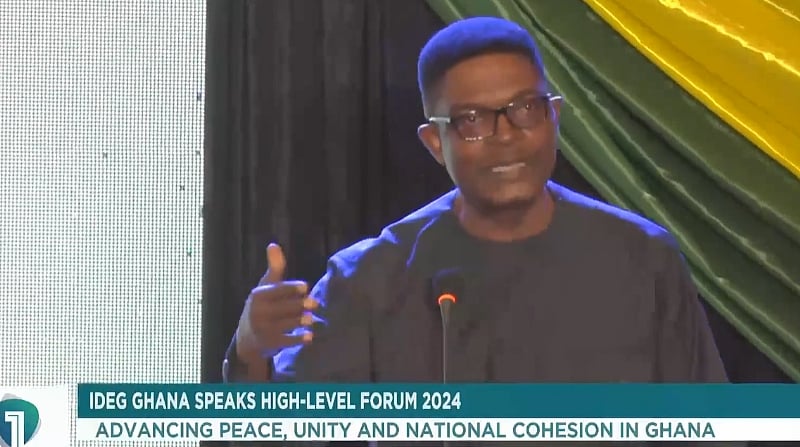Dr. Emmanuel O. Akwetey, the Executive Director of the Institute for Democratic Governance (IDEG), articulated significant concerns regarding Ghana’s preparedness for the upcoming December elections, primarily focusing on the country’s inadequate measures to mitigate electoral violence and bolster public confidence in the electoral process. During a forum held in Accra on October 10, themed “Advancing Peace, Unity, and National Cohesion in Ghana,” Dr. Akwetey highlighted the need for proactive initiatives to ensure a calm and credible electoral environment. He pointed out that despite the approaching elections, necessary steps to promote peace and manage conflict have yet to be fully established, raising alarms about potential tensions that could emerge.
One of the central issues raised by Dr. Akwetey was the criticism directed at the Electoral Commission (EC), which plays a crucial role in overseeing elections. He argued that a significant portion of the public’s distrust stems from the controversial processes involved in appointing EC officials. This point underlines the broader challenge of maintaining public confidence in electoral institutions, especially when the selection of key officials appears biased or politically motivated. According to Dr. Akwetey, the perception that political parties influence the appointment of EC chairpersons leads to a lack of impartiality and hinders the integrity of the electoral process.
Dr. Akwetey asserted that the current political climate has created an environment where citizens feel justified in questioning the neutrality of the EC. “We haven’t done what we should to deter violence,” he declared, underscoring the urgent need for comprehensive reforms and institutional strengthening. He emphasized that reliance on the EC alone to ensure election integrity is misplaced, given the inherent challenges and entrenched mistrust fostered by partisan appointments. The association of the EC with political favoritism complicates the task of conducting fair elections and invigorates suspicions among the electorate.
To rectify these challenges, Dr. Akwetey called for a concerted effort to enhance transparency within the electoral framework, which he viewed as fundamental to restoring faith among voters. He argued for reform measures that would ensure a more equitable process for selecting electoral officials, thereby allowing the EC to operate with greater credibility. By fostering public trust through transparency and accountability, Ghana could work toward not only deterring electoral violence but also ensuring that future elections reflect the will of the people rather than the interests of political elites.
The importance of peaceful and credible elections extends beyond the immediate electoral context; it is pivotal for maintaining national cohesion and unity, according to Dr. Akwetey. He warned that without significant improvements in how elections are managed and perceived, Ghana risks deepening divisions that could disrupt social harmony. As such, the onus lies on all stakeholders, including political parties, civil society, and the EC, to commit to creating an environment where democracy can flourish without violence.
In conclusion, Dr. Akwetey’s insights underscore a critical juncture for Ghana as it approaches its elections. His call for stronger governance, the establishment of trust in electoral processes, and the elimination of potential sources of conflict is a plea for a collective commitment to democracy. As the nation prepares for the December polls, the efficacy of these reforms will determine not only the integrity of the elections but also the broader fabric of Ghanaian society, emphasizing the correlation between electoral integrity and national unity.


